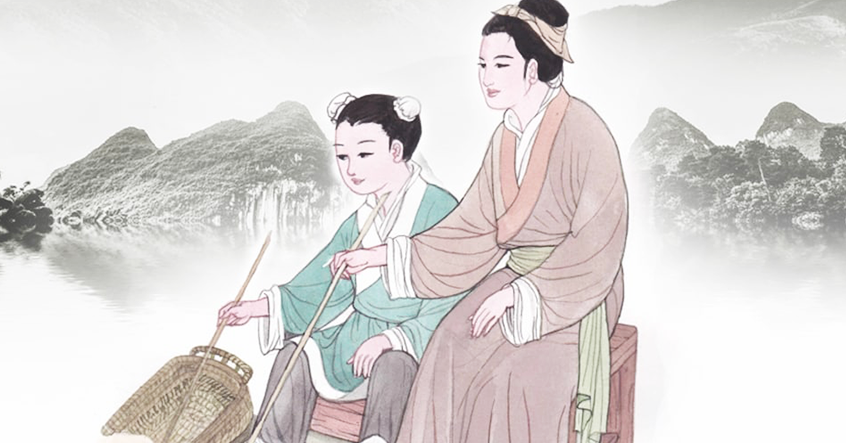Kỷ Hiểu Lam, a famous writer during the Qing Dynasty, was always busy with his official duties and found it difficult to educate and teach his children. Understanding that fathers tend to spoil their daughters, he wrote a letter to his wife, explaining how to educate their children. In the letter, he outlined the “4 Prohibitions” and the “4 Recommendations” for raising children:
4 Prohibitions
1. Prohibit Late Rising
“Early morning is the highest form of nourishment for the body,” or “morning brings a refreshed spirit.” Tăng Quốc Phiên wrote a letter to his younger brother, stating: “If you want to eliminate laziness, you must first leave your bed in the early morning.”
We often say that in order to cultivate oneself, one must self-discipline and start with diligence. With diligence, we can conquer laziness and overcome mediocrity. With diligence, nothing in the world is difficult.
2. Prohibit Laziness
“Throughout history, ordinary people have failed because of laziness, and talented people have also failed because of arrogance.” The majority of people who live ordinary lives and have no remarkable achievements fail because of laziness.
3. Prohibit Extravagance and Waste
The “Chu Tự Gia Huấn” states: “It is not easy to produce a bowl of porridge or a bowl of rice; it is even harder to produce half a silk thread or half a piece of fabric.” This admonishes people who don’t know how to be frugal to value the things they have in life, as producing those things is not easy.
4. Prohibit Arrogance
Arrogance leads to loss, while humility leads to gain. When someone is arrogant, they lose their motivation for progress. Arrogance naturally leads to an attitude of looking down on others and manipulating them.
No one enjoys or willingly associates with those who are arrogant, as arrogance is a disrespectful attitude that neither earns nor receives respect and support from others.

The methods of educating children used by ancient sages are still considered as “golden standards” for all ages
4 Recommendations
1. Recommend Reading Diligently
Tăng Quốc Phiên wrote in the letter regarding the education of children: “A person’s demeanor is innate and difficult to change, but reading can transform this demeanor. In ancient times, those who were skilled in physiognomy also claimed that reading can change a person’s character.”
More importantly, when one reads diligently, there are issues that cannot be explained but can be understood, and there are problems that seem unsolvable but have methods to be solved. It makes even the foolish become intelligent, and it makes the narrow-minded and conservative become wise and enlightened.
2. Recommend Respecting Teachers
“A day as a teacher, a lifetime as a father.” The virtue of respecting teachers was highly regarded by the ancients. According to the book “Lã Thị Xuân Thu – tôn sư,” it says, “Those who are born need to be nurtured, and those who die need to be respectfully worshipped. Respecting teachers is also a virtue.”
3. Recommend Loving Others
The book “Luận Ngữ” wrote: “Always have compassion, treat others as your relatives.” This means that we should always have a compassionate and loving heart towards others as if they were our own kin, and we should also be close to those who possess moral virtue. Education is primarily about learning to be a good person, cultivating morality, and developing personality; only then should we study knowledge and skills to enhance our abilities.
4. Recommend Eating and Drinking Moderately
In the “Đệ Tử Quy,” it states, “Regarding eating and drinking, do not be picky. Eat enough, but not to the point of being full.” The quality of a person’s life and the state of their health are closely related to their daily eating and drinking habits. Excessive indulgence in food and drink, staying up late, and getting up late are all signs of a life without discipline.
Modern diseases such as cancer, diabetes, and gout all have deep-rooted causes stemming from excessive eating and drinking, which leads to an imbalanced and unhealthy body. Therefore, the eating and drinking habits of children must be strict and moderate.
































